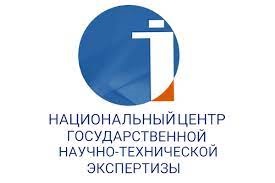Kazakh language in the context of globalization and digital transformation: language changes
https://doi.org/10.55491/2411-6076-2025-1-151-160
Abstract
Currently, due to the course of globalization and the rapid process of digitalization, changes are taking place in the language. Almost all phenomena occurring in society manifest themselves in language. The article examines the sociolinguistic aspects of linguistic changes that have occurred in the Kazakh language in the context of globalization and digital transformation.
The purpose of the article is to identify the impact and sociolinguistic features of the globalization process and the work on digitalization of Kazakhstan on the state language.
The materials of the work include new language units, texts in Kazakh, on government websites egov.kz, astanahub.com, primeminister.kz, elicense.kz, new language uses found in the speech of Kazakh language speakers. This article discusses such problems as understanding and analyzing linguistic changes that have occurred as a result of digitalization, as well as finding ways to preserve and develop the Kazakh language in the context of globalization and technological progress. This article attempts to identify the main trends in the development of the modern globalized world and their impact on the development of the Kazakh language, which allows us to understand the direction of the dynamics of linguistic processes in modern society.
Keywords
About the Authors
A. SerikbayevaKazakhstan
Aizhan Serikbayeva, Postdoctoral fellow
Almaty
Zs. Olach
Hungary
Zsuzsanna Olach, Doctor of Philosophy (PhD)
Szeged
References
1. Ajtymbetov, N., Nabieva, L. (2023) Qazіrgі qazaqstandyq zhastardyng sajasi madenietіnіng ozgeruіne cifrly tehnologijalardyng yqpaly. Al'-Farabi. 81(1). B. 158-169. [Aitymbetov, N., Nabieva, L. (2023) The influence of digital technologies on the change in the political culture of modern Kazakh youth. Al-Farabi. 81(1). P. 158-169] doi: 10.48010/2023.1/1999-5911.13 (in Kazakh)
2. Akynova, D.B. (2014) Kazahsko-anglijskie jazykovye kontakty: kodovoe perekljuchenie v rechi kazahov-bilingvov. Diss...doktora filosofii (PhD). Astana. 227 s. [Akynova, D.B. (2014) Kazakh-English language contacts: code switching in the speech of Kazakh bilinguals. Diss...Doctor of Philosophy (PhD). Astana. 227 p.] (in Russian)
3. Androutsopoulos, J. (2010) Localizing the Global on the Participatory Web. In N. Coupland (ed.) The Handbook of Language and Globalization. Malden, MA: Wiley-Blackwell. P. 203-231. (in English)
4. Anis, J. (2007) Neography: Unconventional spelling in French SMS text messages. In B. Da-net and S. C. Herring (eds.). P. 87-115. (in English)
5. Bailey, D.C. (2006) Lingua Francas in the United States: A Study of Contact and Communication. Routledge. (in English)
6. Baron, N.S. (2008) Always on: Language in an Online and Mobile World. Oxford: Oxford University Press. (in English)
7. Fazylzhanova, A., Serikbayeva, A. (2019) The Kazakh lexicon of the virtual communication. Вulletin of National Academy of Sciences of the Republic of Kazakhstan. Vol. 4. No. 380. P. 141-146. doi: 10.32014/2019.2518-1467.102. (in English)
8. Gregorich, S. (2018) Business English as a Lingua Franca: A Global Perspective. (in English)
9. Hasanov, B. (2006) Tіldіk qatynas negіzderі. Almaty. [Khassanov, B. (2006) Fundamentals of language communication. Almaty.] (in Kazakh)
10. IrbisGPT (2024) Kak ustroena pervaja nejroset' na kazahskom jazyke.[IrbisGPT. How the first neural network in the Kazakh language works][Electronic resource]. – URL: https://the-tech.kz/irbisgpt-kak-ustroena-pervaya-nejroset-na-kazahskom-yazyke. (Date of use 16. 08. 2024) (in Russian)
11. Isaev, M.K. (2004) Bilingval'noe obrazovanie: vyzov vremeni. Russkij jazyk i literatura v kazahskoj shkole. № 3. S. 3-6. [Isayev, M.K. (2004) Bilingual education: the challenge of time. Russian language and literature in the Kazakh school. No. 3. P. 3-6.] (in Russian)
12. Jenkins, J. (2000) The Phonology of English as an International Language. Oxford University Press. (in English)
13. Jenkins, J. (2015) Global Englishes: A resource book for students. 3<sup>rd</sup> ed. London; New York. 280 p. (in English)
14. Karlinskij, A. (2011) Vzaimodejstvie jazykov: bilingvizm i jazykovye kontakty. Almaty. 246 s. [Karlinsky, A. (2011) Interaction of languages: bilingualism and language contacts. Almaty. 246 p.] (in Russian)
15. Kenzhebaeva, A.K. (2015) Bilingvizm kak social'nyj fenomen: kazahskij kontekst. Vestnik KazNU. Serija Filologija. S. 86-92. [Kenzhebayeva, A.K. (2015) Bilingualism as a social phenomenon: the Kazakh context. Bulletin of the Treasury. Philology series. P. 86-92.] (in Russian)
16. Ormahanova, E.N. (2023) Osobennosti jazykovyh sredstv rolevyh modelej v cifrovoj zhurnalistike Kazahstana. Tiltanym. (3): S. 127-134. [Ormakhanova, E.N. (2023) Features of linguistic means of role models in digital journalism in Kazakhstan. Tiltanym. (3): P. 127-134.] https://doi.org/10.55491/2411-6076-2023-3-127-134 (in Russian)
17. Qazaqstan Respublikasyndagy til sajasaty maseleleri boiynsha aleumettik zhane analitikalyq zertteuler (2023). Qazaqstan Respublikasy gylym zhane zhogary bilim ministrligining Til sajasaty komiteti, «EcoVid» JK. Astana, 2023 jyl. 131 b. [Social and analytical research on the problems of language policy in the Republic of Kazakhstan (2023). Language Policy Committee of the Ministry of Science and higher education of the Republic of Kazakhstan, IP "EcoVid". Astana. 131 p.] (In Kazakh)
18. Richler, H. (2007) Global mother tongue: The eight flavours of English. Montreal. 169 p. (In English)
19. Serikbayeva, А. (2023a) Cifrlyq Qazaqstan uderisining qazaq tiline aseri. Bulletin of the Karaganda university. Philology series. 2022(4). B. 124-129. [Serikbayeva, А. (2023a) The impact of the Digital Kazakhstan process on the Kazakh language. Bulletin of the Karaganda university. Philology series. 2022(4). P. 124-129.] (in Kazakh)
20. Serikbayeva, A. (2023b) Qazaqstandy cifrlandyrudagy memlekettіk tіldіng aleumettіk-lingvistikalyq erekshelіkterі. Tiltanym. 2023(3): B. 184-191. [Serikbayeva, A. (2023b) Socio-linguistic features of the state language in the digitalization of Kazakhstan. Tiltanym. 2023(3): P. 184-191.] doi: 10.55491/2411-6076-2023-3-184-191 (in Kazakh)
21. Sulejmenova, Je.D. (2011) Makrosociolingvistika. Almaty: Qazaq universitetі. 404 s. [Suleimenova, E. D. (2011) Macrosociolinguistics. Almaty: Kazakh university. 404 p.] (in Russian)
22. Zharqynbekova, Sh.K., Chernjavskaja, V.E. (2022) Kazahsko-russkoe smeshenie koda: metakommunikativnaja perspektiva. Vestnik Sankt-Peterburgskogo universiteta. Jazyk i literatura. 19(4): S. 780-798. [Zharkynbekova, Sh.K., Chernyavskaya, V.E. (2022) Kazakh-Russian code mixing: a metacommunicative perspective. Bulletin of St. Petersburg University. Language and literature. 19(4): P. 780-798.] doi: 10.21638/spbu09.2022.408 (in Russian)
Supplementary files
Review
For citations:
Serikbayeva A., Olach Z. Kazakh language in the context of globalization and digital transformation: language changes. Tiltanym. 2025;97(1):151-160. https://doi.org/10.55491/2411-6076-2025-1-151-160
JATS XML

















